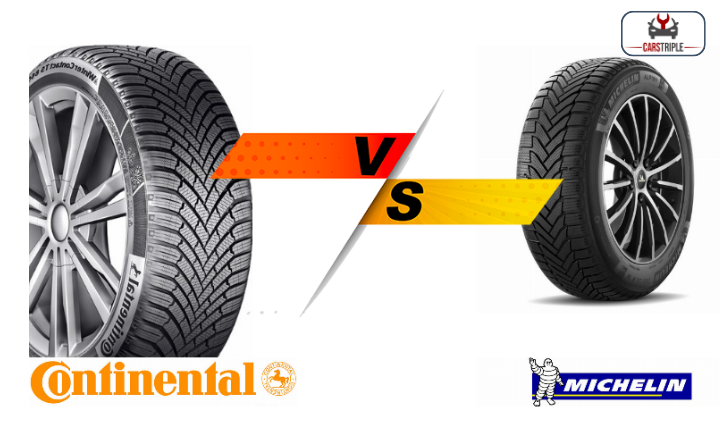The tire market is a battleground, with manufacturers always trying to outdo each other. Continental TrueContact and Michelin Defender are two of the best-performing premium tires. They both work well under different conditions. TrueContact stands out when driving on wet surfaces, while Defender performs best on dry roads. You can use both in light snow conditions, too.
Both tires also help reduce noise for a more comfortable ride. According to tests performed by NeoTires and even many users claim that TrueContact offers slightly more comfort than the Michelin Defender. This doesn’t imply that Defender is uncomfortable; it’s just that TrueContact seems to give a smoother ride overall.
These are famous for producing high-quality tires, using cutting-edge technology to improve performance. They offer similar warranties and guarantees. But Michelin’s prices are higher than Continental’s.
This post will examine Michelin Tires vs Continental brand’s design features, technological advancements, best-selling tires, contracts, warranties, and costs.
About Continental Tires
Continental Tires is a well-known tire company from Hanover, Germany. It’s one of the oldest and most trusted tire makers globally. The company started in 1871, making rubber goods like belts and boots. Later, they saw a chance to make bicycle tires and took it. In 1898, they added grooved tires to their products. This move made them famous in the tire industry.
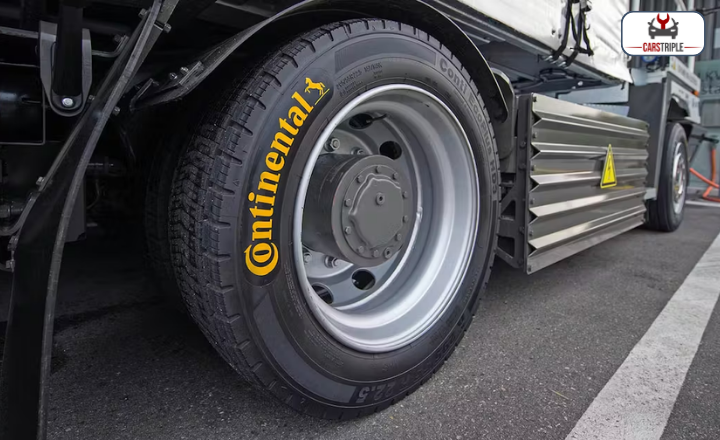
They have over a hundred years of experience and innovation backing it up. It’s a safe pick for anyone needing new car tires. The brand is known for its good quality and long-lasting tires so buyers can feel sure about their choice.
These Tires make many kinds of tires suitable for all vehicles. You’re likely to find a dependable set of tires from Continental for your minivan, SUV, truck, or car. They make winter, all-terrain, off-road, and even all-season touring tires.
Continental doesn’t just make Original Equipment (OE) and replacement tires. They also provide the first set of tires for big car companies such as the VW Group and BMW. Plus, they’ve proven themselves in the racing world.
About Michelin Tires
Andre and Edouard Michelin started a company called Michelin in 1889. They are known for their groundbreaking work in the tire business. They wanted to make the complex and time-consuming repair jobs more accessible. Two years after they started their company, they made a bicycle tire that could be easily removed. This tire showed how good it was by winning a long-distance race.
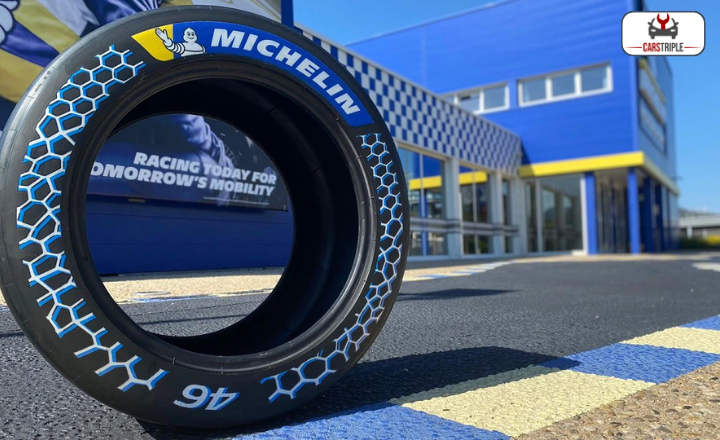
He has been making top-notch tires for over 100 years, yet they had some rivals in 2020. They were slightly outperformed by Bridgestone when it came to total tire sales. Still, Michelin’s standing as a top tire brand on a global scale has remained strong thanks to its focus on quality and innovation.
Michelin is a trusted name worldwide in the tire business. They also own other well-known companies like BF Goodrich and Uniroyal Tires. This helps them reach more markets and offer a more comprehensive range of products to meet various customer demands.
They make tires for all types of vehicles – cars, SUVs, trucks – suitable for different weather conditions and landscapes. They have tires that are high-performance, suited for SUVs, or more budget-friendly options.
He is also involved in racing, which shows their dedication to innovation and superior quality. Their research and development over the years has led to the creation of high-performance tires used in big-name races like Le Mans and Formula 1. All this only strengthens Michelin’s position as a critical player in the tire business.
Design Features And Technologies: Michelin Tires vs Continental
Michelin tires vs Continental both come with many design elements and tech features. These make sure they work well in all kinds of weather and landscapes. Both brands focus on making their tires safe, long-lasting, fuel-saving, and high-performing, regardless of road conditions.
Continental Tires
Continental’s run-flat technology marks a big step forward in making tires. This feature lets you drive up to 50 miles even after your tire gets a puncture. This can be very handy and save time, especially when you’re in a hurry or driving somewhere far from help. It also makes driving safer. Punctures in ordinary tires can lead to loss of car control. They are pricier than standard tires. But considering the convenience, time-saving, and safety they offer, it’s worth giving them some thought.
Continental Run-flat Technology
Continental’s run-flat technology is designed to provide convenience and safety to drivers. The key feature of these tires is their ability to maintain functionality even after being punctured, allowing you to continue driving for approximately 80 miles at a reduced speed. This means that you can reach your destination or find a safe place to change your tire without the need for immediate roadside assistance.

These tires are engineered with reinforced sidewalls which support the weight of the vehicle even when the tire loses air pressure. This ensures stability and control, making it safer for you on the road.
Continental ContiSeal Technology
Continental’s ContiSeal technology is an innovative solution to prevent flats and keep you on the road. The technology involves a sticky, viscous layer applied to the inside of the tire that instantly seals punctures up to 5mm in diameter. This means that if your tire gets punctured by common road debris like nails or glass, the ContiSeal technology will immediately seal the hole, maintaining tire pressure and allowing you to continue driving without interruption.
The main advantage of this technology is its convenience. It saves drivers from the hassle of changing a flat tire on the roadside or waiting for roadside assistance. It also provides an added level of safety by preventing sudden air loss, which can lead to dangerous situations while driving at high speeds.
Continental ContiSilent Technology
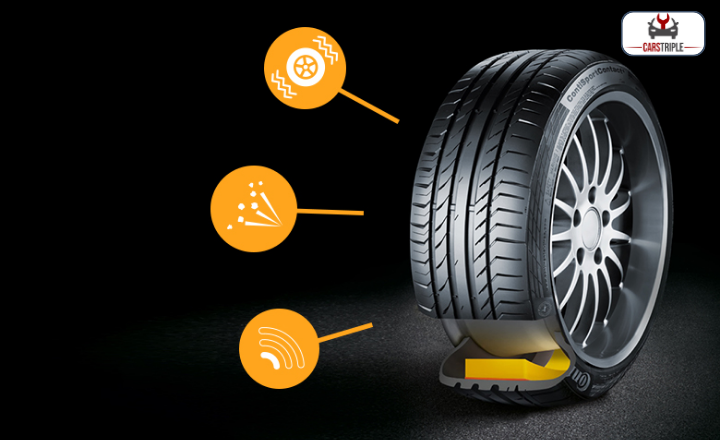
Continental’s ContiSilent technology is indeed a revolutionary solution to the noise and vibration problem associated with road travel. The technology involves using an inner tire absorber, which is essentially a layer of sound-absorbing foam attached to the inside surface of the tread. This foam acts as a cushion between the tire and the road surface, dampening vibrations and reducing overall road noise.
This results in a quieter ride, allowing for easier conversations, undisturbed music listening, and peaceful sleep for passengers on long trips. It’s important to note that this technology doesn’t compromise on other critical aspects of tire performance such as grip, wet performance or rolling resistance.
Michelin
Michelin is known for its continuous advancements in tire technology. The Michelin Acoustic technology, for instance, is a sound-absorbing foam inside the tire to reduce road noise, enhancing the comfort of your driving experience. This technology is especially beneficial in electric and luxury vehicles with minimal engine noise.
Michelin Selfseal Technology
Michelin’s Selfseal technology is designed to counteract the problems associated with tire punctures. This technology integrates an internal tire sealant made from natural rubber, which acts swiftly when a tire is pierced by an object such as a nail, screw, or shard of glass. The sealant immediately surrounds the puncturing object, fills the hole, and halts any air leakage, thus maintaining optimal tire pressure.
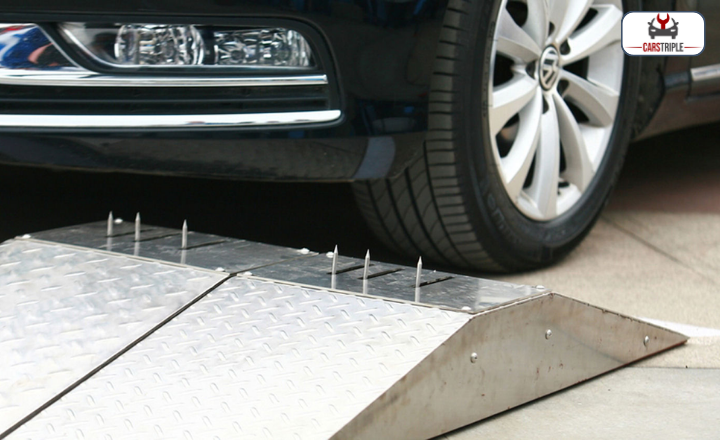
Several Michelin tires incorporate this innovative self-seal technology, including the Premier A/S, Energy Saver A/S, and Primacy Tour A/S. This feature significantly reduces delays and difficulties caused by unexpected tire punctures and helps ensure a safer and smoother driving experience.
Michelin Acoustic Technology
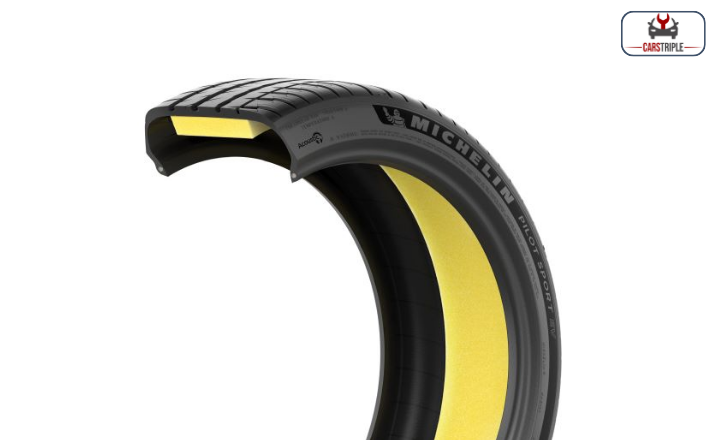
Michelin has indeed incorporated noise-canceling technology into some of their tires. This is known as Michelin Acoustic Technology, and it’s designed to reduce the vibrations produced when a tire rolls on the road surface. These vibrations are one of the leading causes of road noise, which can be disruptive inside the vehicle cabin.
Michelin also claims to achieve a 20% reduction in cabin noise. This improvement enhances passenger comfort and enables more accessible hands-free communication within the vehicle.
Price Range
Continental and Michelin tires are both reputable brands in the tire industry, offering a range of products to suit different needs and budgets. Continental tires are designed for customers who want premium quality without breaking the bank. The price range typically falls between $70 and $500, depending on the type and size of the tire.
These tires are known for their high performance and durability. The prices generally start from $90 and can go up to $530. The higher cost is often justified by the long-term benefits these tires provide regarding safety, fuel efficiency, and longevity.
Warranties And Guarantees
Continental and Michelin both offer comprehensive warranty plans for their tires, providing customers with a level of assurance about the quality and durability of their products. The Michelin Promise Plan and the Continental Absolute Confidence Plan both include mileage warranties, which cover any defects in artistry or materials for a specified number of miles. If your tires wear out prematurely or have manufacturing defects within the stipulated mileage, you can get them replaced at no extra cost.
Both of the companies also offer a 60-day money-back guarantee. This allows customers to return their tires within 60 days of purchase if unsatisfied with their performance.
The superiority between Continental and Michelin largely depends on your specific needs, preferences, and budget. If you prioritize premium quality and high performance regardless of the cost, Michelin is often regarded as superior. They are known for their exceptional grip and handling, long tread life, and overall top-tier performance in various weather conditions.
Continental could be the right pick for you, offering a good mix of quality and affordability. They might not always rival the performance of Michelin’s top-tier models, but their tires are dependable. Without breaking your budget, you can count on them for reasonable control and lasting durability.
Conclusion
Michelin tires vs Continental, both of these provide high-quality tires catering to various driver needs. Michelin tires offer superior quality and longevity, making them a good investment for those seeking long-term use. Continental tires excel in performance and comfort, ideal for drivers seeking a smooth driving experience. So, pick what suits your car tire needs best. No matter the choice, remember to keep up with tire care. This makes sure they work well and keep you safe while driving.
Faq’s
Which tire brand has a more extensive range offering – Michelin or Continental?
Michelin and Continental both companies have an extensive range covering almost all types of vehicles but Michelin tends to have more specialized models available.
Are either of these tire brands known for being particularly quiet during operation?
Both of these brands strive to reduce road noise but many users find that Michelin’s unique rubber compounds result in quieter performance.

